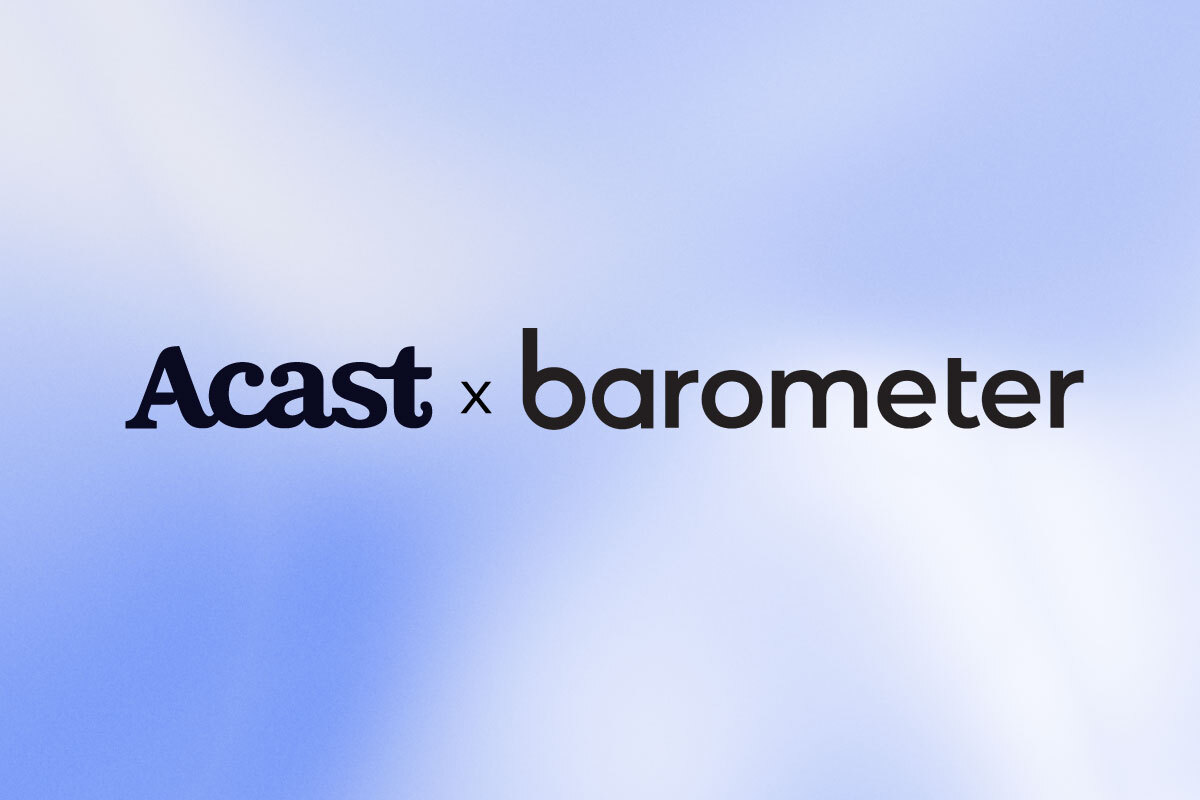Acast Turns Up the Volume on Sustainability

New company initiatives reduce greenhouse gas emissions by 72% year-on-year
Since 1970 World Earth Day has been celebrated annually on April 22 around the globe to support environmental protection. Each year, Acast has marked the day in various ways in each of its global markets to promote clean energy and sustainability best practices for our industry.
This year in our Sustainability (ESG) Report, which is included in our Annual Report that was released last week, we’re sharing new metrics and initiatives that have proven to reduce our carbon footprint over the past year. Importantly, we recognize that sustainability is an ongoing process and we’re always working to find even better ways to reduce our emissions around the world.
In 2022, we discovered that the largest contributor to Acast’s total emissions were from what’s known as Scope 3 emissions, or indirect emissions as the result of activities from assets not owned by Acast as a business. The two largest areas of emissions that we found were indirect cloud based emissions from the streaming of podcasts and business travel by employees.
While these are labeled as indirect emissions, at Acast we still recognized that we had a responsibility to discover solutions for reducing these numbers. So this is where we began.
Emission reductions from third party service providers:
The brilliant engineering team at Acast spent the past year investigating ways to reduce emissions of our podcast streaming through Amazon Web Services, (AWS).
AWS is a necessary part of our business that provides Acast with audio delivery servers, which is what powers the majority of our content and ad campaigns. Historically, Acast has used servers that are located all around the world.
However, in 2023, our engineers recognized that we could change the physical presence of our servers and drastically reduce our emissions. After a thorough process Acast’s servers are now located only within the US or EU, which has had a dramatic effect on our total CO2 emissions.
In fact, Acast emissions from third party servers for 2023 are one fifth of what they were in 2022.
Emission reductions from business travel for employees:
Business travel in 2022 also had a significant impact on Acast’s CO2 emissions, but we have seen a similar sized reduction to this over the last year. This is due to the continued focus internally on keeping business travel to a minimum and only traveling when essential.
Acast was recently named the #1 podcast company globally by Podtrac. This means that we have a strong presence around the world. But as part of our global strength, Acast is home to regional experts who understand the unique nuances of their market. Therefore, while business travel is always valuable for team collaboration and key industry events, it’s not needed to demonstrate our expertise worldwide.
As a result of implementing new travel policies, Acast saw a 75% reduction in our emissions from business travel from 2022 to 2023.
Overall, Acast’s greenhouse gas emissions were reduced by 72% between 2022 and 2023.
While we are incredibly proud of this work, we also recognize that there is so much more work to be done in reducing carbon emissions all around the world. Across Acast’s global markets new sustainability practices are taking shape to help reduce the local emissions.
New company initiatives reduce greenhouse gas emissions by 72% year-on-year
Since 1970 World Earth Day has been celebrated annually on April 22 around the globe to support environmental protection. Each year, Acast has marked the day in various ways in each of its global markets to promote clean energy and sustainability best practices for our industry.
This year in our Sustainability (ESG) Report, which is included in our Annual Report that was released last week, we’re sharing new metrics and initiatives that have proven to reduce our carbon footprint over the past year. Importantly, we recognize that sustainability is an ongoing process and we’re always working to find even better ways to reduce our emissions around the world.
In 2022, we discovered that the largest contributor to Acast’s total emissions were from what’s known as Scope 3 emissions, or indirect emissions as the result of activities from assets not owned by Acast as a business. The two largest areas of emissions that we found were indirect cloud based emissions from the streaming of podcasts and business travel by employees.
While these are labeled as indirect emissions, at Acast we still recognized that we had a responsibility to discover solutions for reducing these numbers. So this is where we began.
Emission reductions from third party service providers:
The brilliant engineering team at Acast spent the past year investigating ways to reduce emissions of our podcast streaming through Amazon Web Services, (AWS).
AWS is a necessary part of our business that provides Acast with audio delivery servers, which is what powers the majority of our content and ad campaigns. Historically, Acast has used servers that are located all around the world.
However, in 2023, our engineers recognized that we could change the physical presence of our servers and drastically reduce our emissions. After a thorough process Acast’s servers are now located only within the US or EU, which has had a dramatic effect on our total CO2 emissions.
In fact, Acast emissions from third party servers for 2023 are one fifth of what they were in 2022.
Emission reductions from business travel for employees:
Business travel in 2022 also had a significant impact on Acast’s CO2 emissions, but we have seen a similar sized reduction to this over the last year. This is due to the continued focus internally on keeping business travel to a minimum and only traveling when essential.
Acast was recently named the #1 podcast company globally by Podtrac. This means that we have a strong presence around the world. But as part of our global strength, Acast is home to regional experts who understand the unique nuances of their market. Therefore, while business travel is always valuable for team collaboration and key industry events, it’s not needed to demonstrate our expertise worldwide.
As a result of implementing new travel policies, Acast saw a 75% reduction in our emissions from business travel from 2022 to 2023.
Overall, Acast’s greenhouse gas emissions were reduced by 72% between 2022 and 2023.
While we are incredibly proud of this work, we also recognize that there is so much more work to be done in reducing carbon emissions all around the world. Across Acast’s global markets new sustainability practices are taking shape to help reduce the local emissions.




